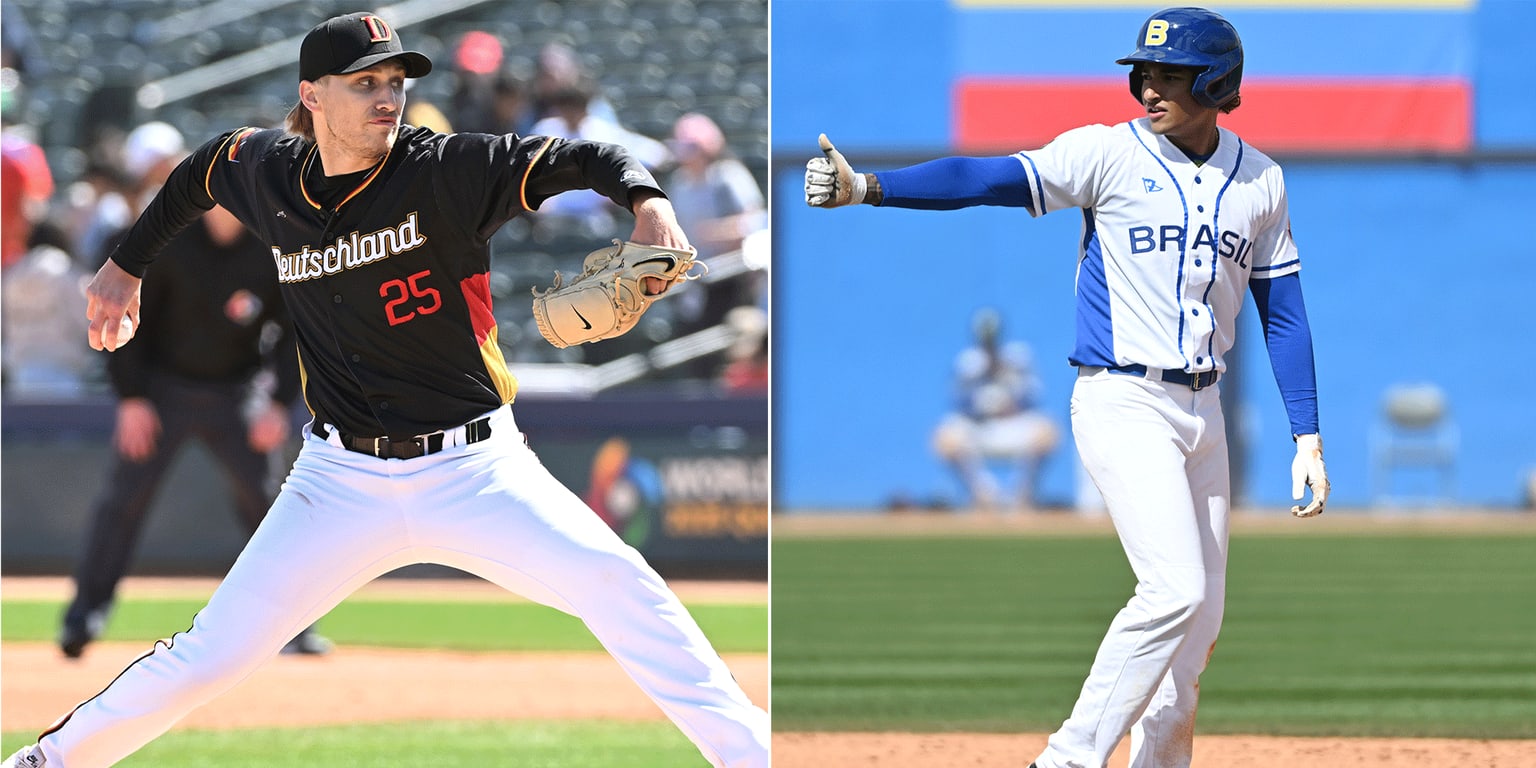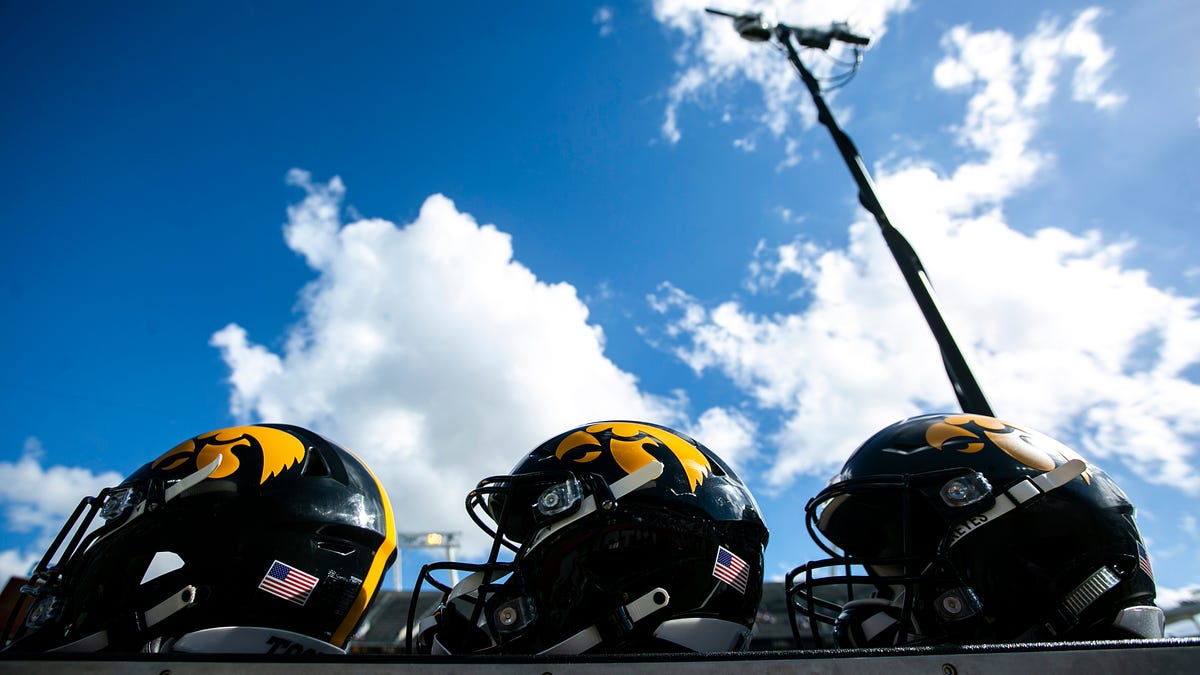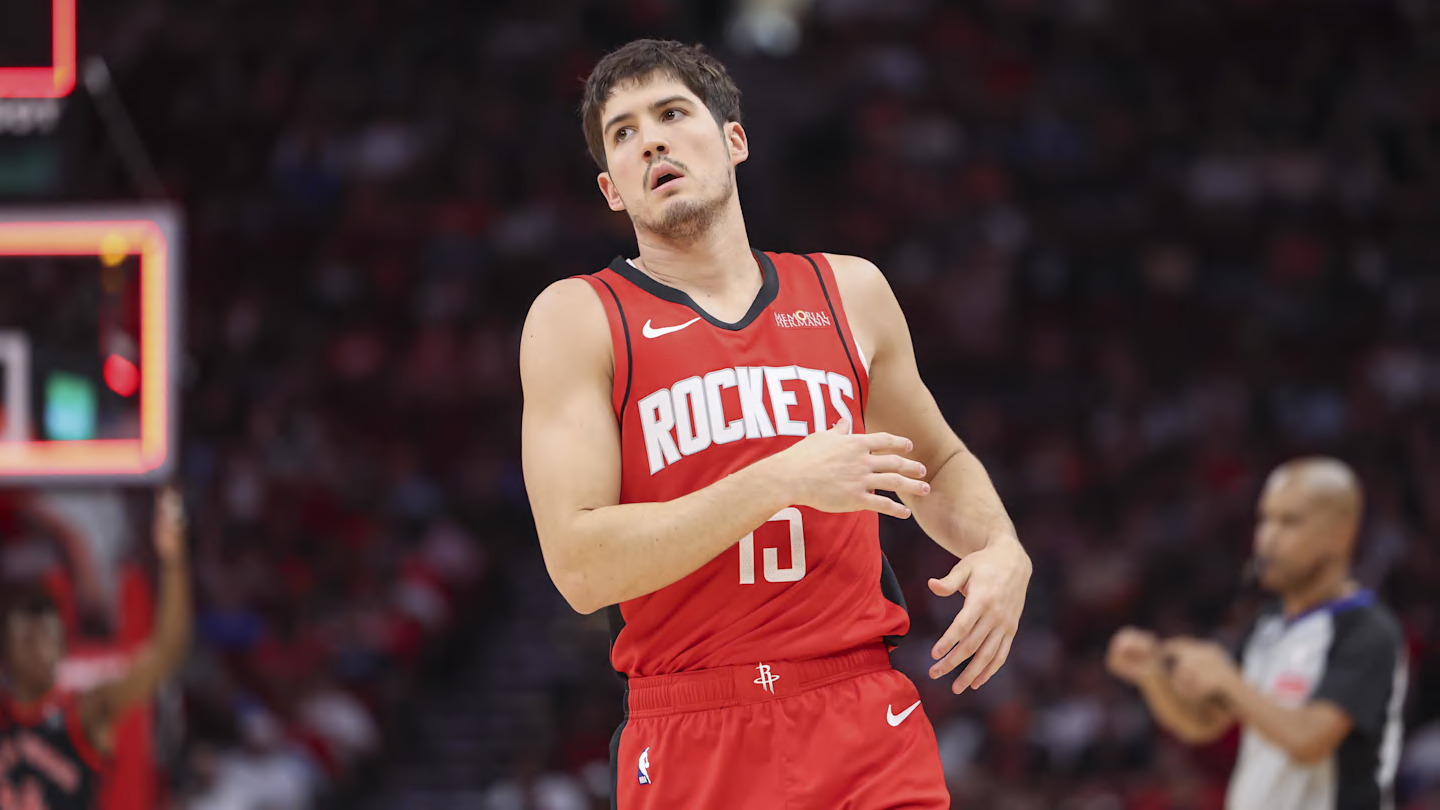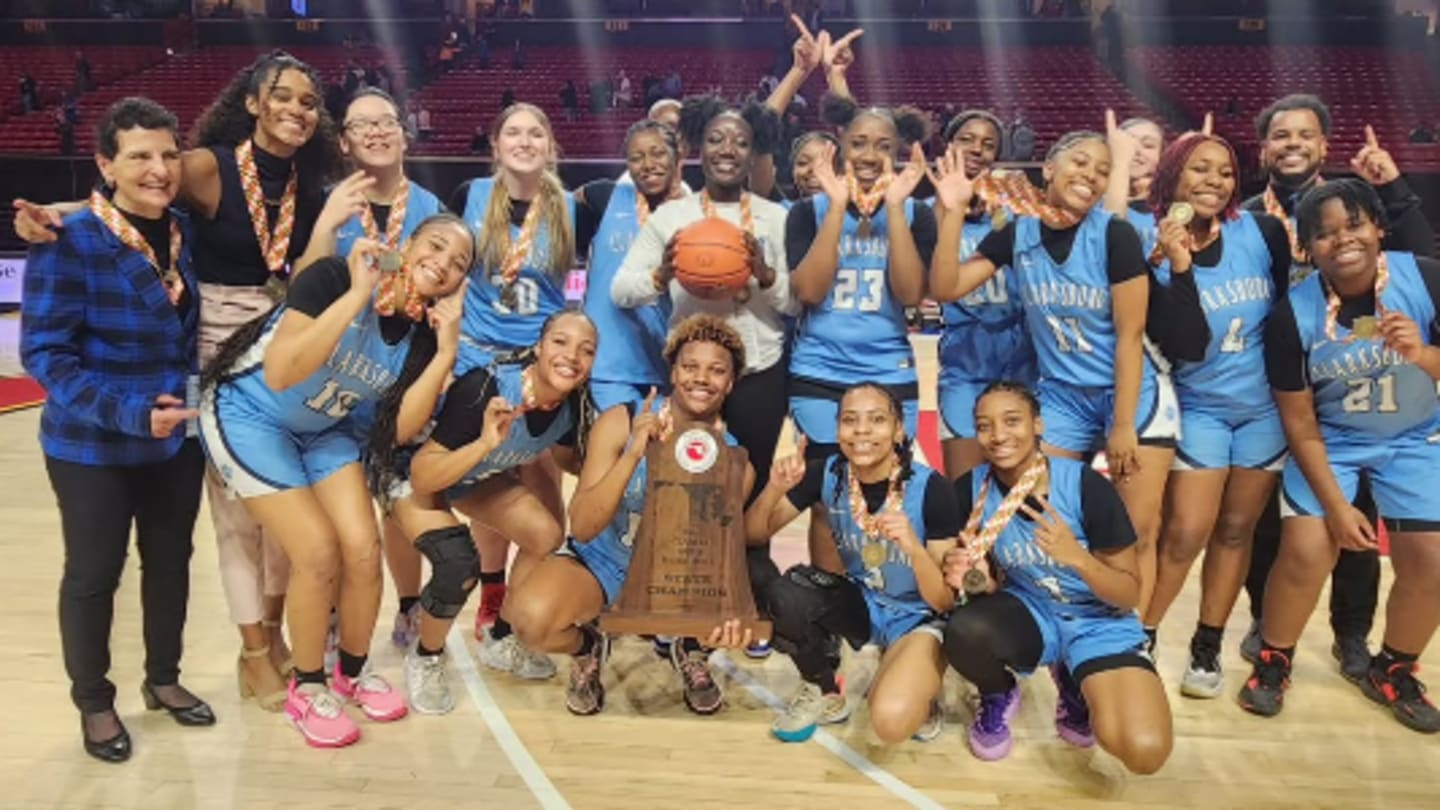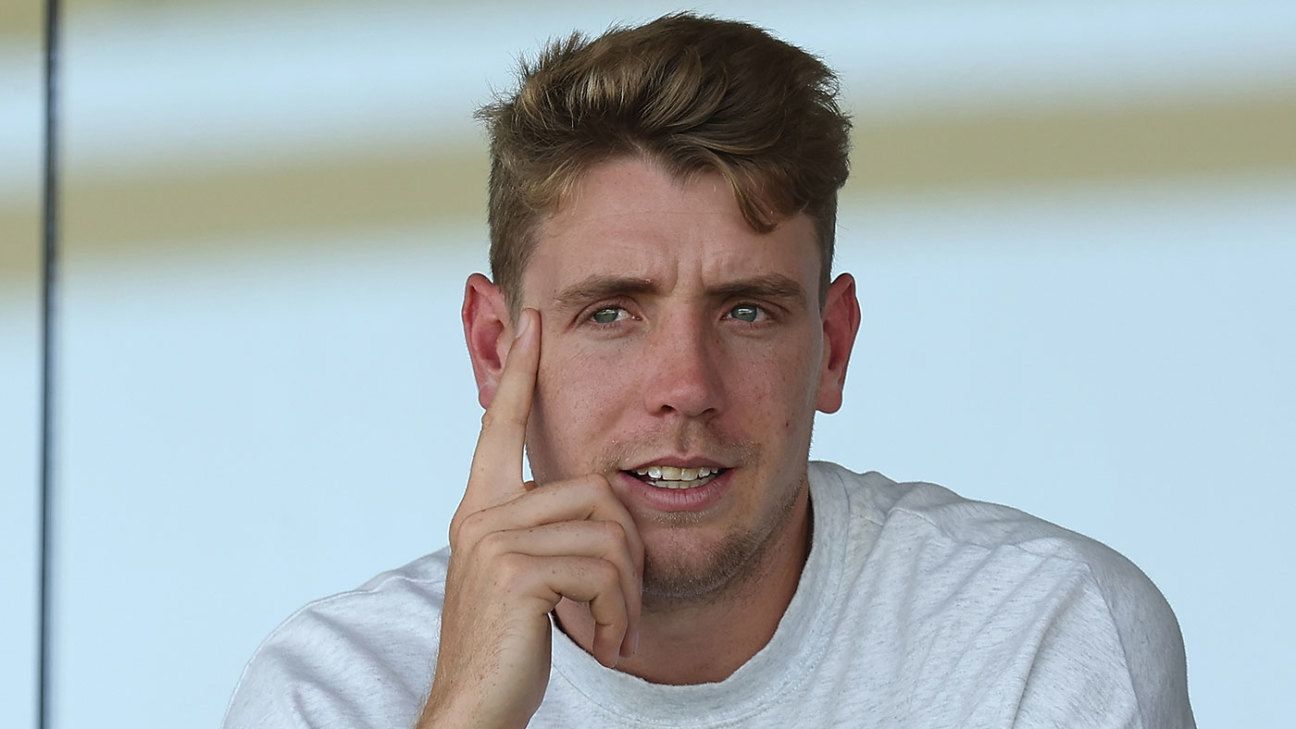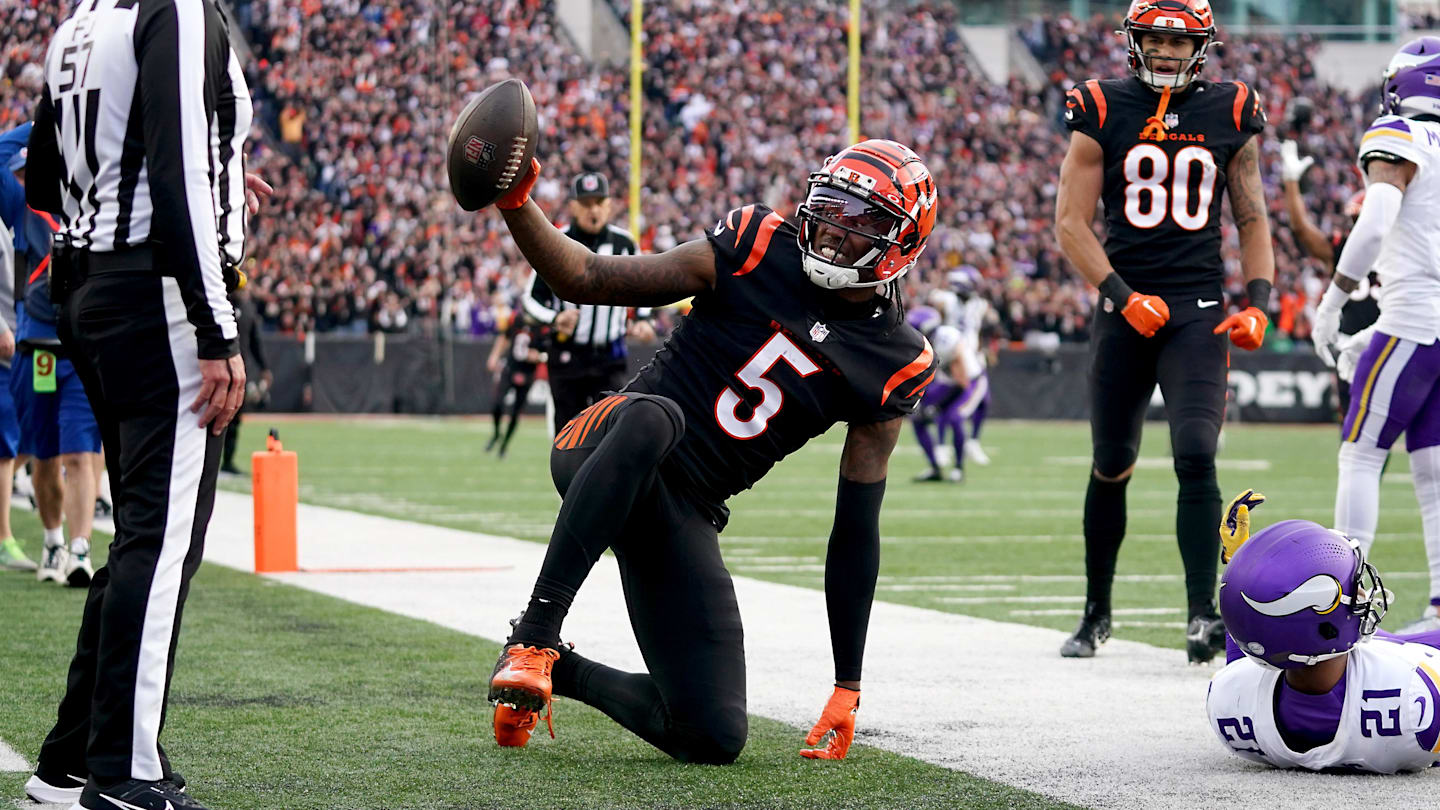Tennis Briefing: How Machac and Siniakova won gold – and tension between prestige and points

Welcome back to the Monday Tennis Briefing, where The Athletic will explain the stories behind the stories from the past week on the court.
This week, the 2024 Paris Olympic tennis tournaments handed out their medals, as hard-court season began in earnest. There were fruitful moments for doubles’ place in tennis, a mixed-doubles relationship and two results that revealed the fine line between prestige and points.
If you’d like to follow our tennis coverage, click here.
Did this Olympic Games show tennis a better path to showing off doubles?
Doubles, especially on the men’s side, has become the increasingly neglected step-child to singles in recent years.
And that is a pretty nasty thing to say about step-children, given how the sport’s ruling class schedules doubles matches either after the singles show is over late at night, or before anyone shows up in the morning. The pay is terrible.
Most of the best players in the world, especially the men, rarely bother with it, despite recent added incentives to encourage participation, including allowing singles players to use their ranking in that discipline as a ticket.
But every four years, the Olympics roll around, and singles, doubles and mixed doubles all offer the same reward: one of those shiny Olympic medals. Suddenly, the sport’s best players are interested — hence that stylish partnership between Rafael Nadal and Carlos Alcaraz.
What this doubles tournament has really proven — especially to people who watch the Olympics first, tennis second, and probably don’t watch much doubles at all — is how different a game doubles is from singles.
Over and over again, doubles specialists made a mess of star singles players.
Matthew Ebden of Australia, who stopped playing singles two years ago and teamed up with John Peers to win the gold medal for Australia, could barely stay on the court with Novak Djokovic in the opening round when he was forced in as a last-minute substitute. He put on quite the clinic in the doubles tournament.
And which team did Ebden and Peers face in the finals?
That would be Rajeev Ram and Austin Krajicek of the United States, two of the world’s best doubles players, who would likely rather wash their hair with water from the Seine than play a singles match. Much of Paris was atwitter every time that ‘Nadalcaraz’ took the court, and Ram and Krajicek were licking their chops when they saw the draw delivered them as their quarter-final opponents.

Ram and Krajicek manoeuvred Nadal and Alcaraz using the geometry of the doubles court (Patricia de Melo Moreira/AFP via Getty Images)
Ram said that was because the match would be an “occasion”. It was also because he knew that he and Krajicek could keep Nadal and Alcaraz off-balance all evening, which is just what they did. They drubbed the Spaniards, 6-2, 6-4.

GO DEEPER
Irresistible force of Nadalcaraz falls at the Olympics to an immovable object
Ebden and Peers, two guys Ram and Krajicek have faced often in major tournaments, posed the bigger problem.
“We have two guys on the other side of the net that play doubles for a living and do it at a super-high level, and that’s as tough as it’s gonna get,” Ram said with a silver medal hanging from his neck.
“That was gonna be the challenge for sure — more so than the singles players, who are great players, no doubt, but they don’t play doubles all the time. The level is just a bit different.”
The singles players who did the best were Taylor Fritz and Tommy Paul, close friends and junior Grand Slam singles final opponents, who have known each other since they were 14 years old and earned a bronze medal. They had the good fortune of facing plenty of singles players throughout, including Felix Auger-Aliassime and Milos Raonic of Canada, Dan Evans and Andy Murray of Britain, and Tomas Machac, of the Czech Republic, who teamed up with Adam Pavlasek.
Fritz and Paul, who lost to Ebden and Peers in the semi-finals, practised doubles for 30 minutes before the tournament, and basically winged it. They had a little help, with Bob and Mike Bryan — just about the best doubles team ever — coaching them.
They said that the Bryans helped them play the best doubles of their lives, but doubles specialists present their own issues, essentially turning the match into a game of keep away as you try to keep the ball away from the guy at the net.
“They are very good at keeping you guessing where they are going,” Fritz said. “If you don’t go to the right spot, they will punish you with the volleys.”
“First time I’ve ever played doubles with any strategy,” Paul admitted.
Bob Byan, a datahead, provided Fritz and Paul with analytics on the serve patterns and tendencies of their opponents and offered them some advice on how they should move and where they should hit the ball.
“Now whether they listened to it — that’s another story,” Bryan said.
“There’s some funny stuff going on out there. It’s certainly not how me and Mike played.”
Matt Futterman
How did Machac and Siniakova go for gold?
Move over Carlos and Novak. The tennis story that captured the imagination of the Olympics was that of the Czech mixed-doubles duo, Katerina Siniakova and Tomas Machac, who won gold against Zhang Zhizhen and Wang Xinyu of China.
Siniakova and Machac have spent the past couple years evolving into the ‘it’ couple of the sport. Sure, Stefanos Tsitsipas and Paula Badosa have their “Tsitsidosa” Instagram account, but this is one of those if-you-know-you-know situations. Siniakova and Machac possess a certain elegance and both play stylishly.
Siniakova also wins a ton, especially in doubles, no matter who her partner is. She and Coco Gauff won this year’s French Open. She and Taylor Townsend won this year’s Wimbledon. She and Barbora Krejcikova, the Wimbledon singles champion, have won seven Grand Slam titles together, as well as Olympic gold at the Tokyo Games.

Gauff and Siniakova beat Italy’s Jasmine Paolini and Sara Errani in Paris in June (Tim Goode/Getty Images)
Siniakova and Machac added another gold to her tally in Paris — but all the chatter has been about the status of their relationship.
Here’s the tea: just before the Olympics, Siniakova announced that she and Machac had broken up. But the hugs and kisses after each win, which became increasingly affectionate, suggested otherwise. In an interview after an early round, they certainly did little to suggest that they weren’t still, you know, regardless of what the internet said.
Who is the boss in the relationship, they were asked? “Me, all the time,” Siniakova said.
How is it to work together? The chemistry is good, Machac insisted. Does Siniakova speak to him differently than to her other doubles partners?
“He says I gave him more pressure,” she said.
“I don’t mind this pressure,” he quickly added.
They were staying in the Olympic Village but in separate bedrooms. “We are professionals,” Machac said. “At least for this week.” They were eating dinner together, then saying good night,
“Yes, always good night, and also good morning,” Machac said. “You cannot forget about good morning.”
Singles, or doubles?
Matt Futterman
A tale of two players?
At the Paris Olympics, Dan Evans was involved in two of the most emotional, joyous matches of his career.
Playing doubles with Andy Murray, who was competing in his final tournament, Evans twice won having saved multiple match points. After both victories, the pair celebrated with a rawness that was genuinely moving. There was nowhere on Earth that they would rather have been in those moments.
For Evans, all this came at a pretty big cost. Playing at the Olympics meant missing the Citi Open in Washington, D.C. and giving up the 500 ranking points he picked up for winning the event last year. How many points he would have defended, no one can really say, but as a result of dropping 500, Evans woke up on Monday morning with his ranking down 118 places from No 58 to No 176. That means no more automatic entry for Grand Slams and the prospect of playing in Challenger tournaments rather than full ATP Tour events.

GO DEEPER
Andy Murray and Dan Evans pull off ludicrous comeback in Olympic doubles
It’s easy to say that Evans wouldn’t trade those unforgettable moments he had in Paris with Murray for ranking points, but this could have a huge impact on his career. Evans is 34, and said at Wimbledon that he’d stop tennis when he had to ask for wild cards for the biggest events. That’s exactly what he will have to do now.
On the flipside, Spain’s Paula Badosa decided to skip the Olympics to protect her last remaining major tournament entry under her special injury ranking for the U.S. Open, and she will be feeling pretty good about that decision. She won the Citi Open on Sunday, beating Marie Bouzkova in the final for her first title in more than two years, moving up 22 places to No 40 in the rankings. She is now within striking distance of the world’s top 32, which means being seeded for the slams.

GO DEEPER
‘I didn’t know if I could play’ – Why Wimbledon’s biggest subplot is injuries
Earlier in the week, she said that skipping Paris had been a “smart decision” given the injury issues she’s had and the challenge of switching from grass to clay and then back to hard.

Badosa fought through three sets to secure the trophy (Allison Robbert/The Washington Post via Getty Images)
While the argument goes that prestige should be enough to convince players to sacrifice ranking points and dollars for the chance to compete for their country, that’s easy to say on behalf of those with plenty of both.
For the majority of players who need all the money and ranking points they can get, it’s not an easy decision to miss out on even just a few hundred points for the sake of the Olympic experience. Add in the risk of an injury at the Games derailing future tournaments — which is why several high-ranked players opted out — Aryna Sabalenka and Ons Jabeur among them — and it’s easy to feel that moments like those enjoyed by Evans shouldn’t come at such a cost.
Charlie Eccleshare
Recommended reading:
🏆 The winners of the week
Paris 2024 Olympics

🎾 ATP:
🏆 Sebastian Korda def. Flavio Cobolli 4-6, 6-2, 6-0 to win the Citi Open (500) in Washington, D.C. It is the American’s first 500-level ATP title and his second career ATP title.
🎾 WTA:
🏆 Paula Badosa def. Marie Bouzkova 6-1, 4-6, 6-4 to win the Citi Open (500) in Washington, D.C. It is the Spaniard’s second 500-level WTA title.
📈📉 On the rise / Down the line
📈 Paula Badosa moves up 22 places from No 62 to No 40 after winning the Citi Open in Washington.
📈 Joao Fonseca ascends into the top 200, rising 48 spots from No 214 to No 166 after winning his first Challenger Tour title in Lexington, Kentucky.
📈Emma Raducanu reenters the top 70 after rising 20 spots from No 89 to No 69.
📉 Dan Evans falls 118 places from No 58 to No 176. He dropped his 500 ranking points for winning last year’s Citi Open.
📉 Anna Karolina Schmiedlova drops eight places from No 67 to No 75 after playing at the Olympics, where she reached the bronze-medal match.
📉Tallon Griekspoor tumbles 12 spots from No 28 to No 40, falling out of the Grand Slam seeding cut-off.
📅 Coming up
🎾 ATP
📍Montreal: National Bank Open (1000) featuring Jannik Sinner, Tommy Paul, Arthur Fils, Daniil Medvedev
📺 UK: Sky Sports; U.S.: Tennis Channel 💻 Tennis TV
🎾 WTA
📍Toronto: National Bank Open (1000) featuring Coco Gauff, Aryna Sabalenka, Ons Jabeur, Naomi Osaka
📺 UK: Sky Sports; U.S.: Tennis Channel
Tell us what you noticed this week in the comments below as the men’s and women’s tours continue.
(Top photo: DeFodi via Getty Images; design: Eamonn Dalton)
Related
Djokovic in way of Alcaraz’s bid for desert 3-peat
INDIAN WELLS, Calif. -- Carlos Alcaraz could run into Novak Djokovic in the quarterfinals in his quest for a rare Indian Wells three-peat, while defending women
Emma Navarro Details ‘Super Exciting Time’ for American Tennis After…
Four American women sit in the Top 10 in the WTA rankings after Emma Navarro jumped to No. 8 in the world after capturing her first 500 title at the Merida Open
The American ATP player who Rafael Nadal said had a…
American tennis is back on the up and Rafael Nadal saw a revival coming back in 2022 around the time when Indian Wells was taking place. The BNP Paribas Open w
Baseball is king when sons of sports royalty face off
Sons of Manny Ramirez, Andre Agassi face off \n\n","providerName":"Twitter","providerUrl":" did



